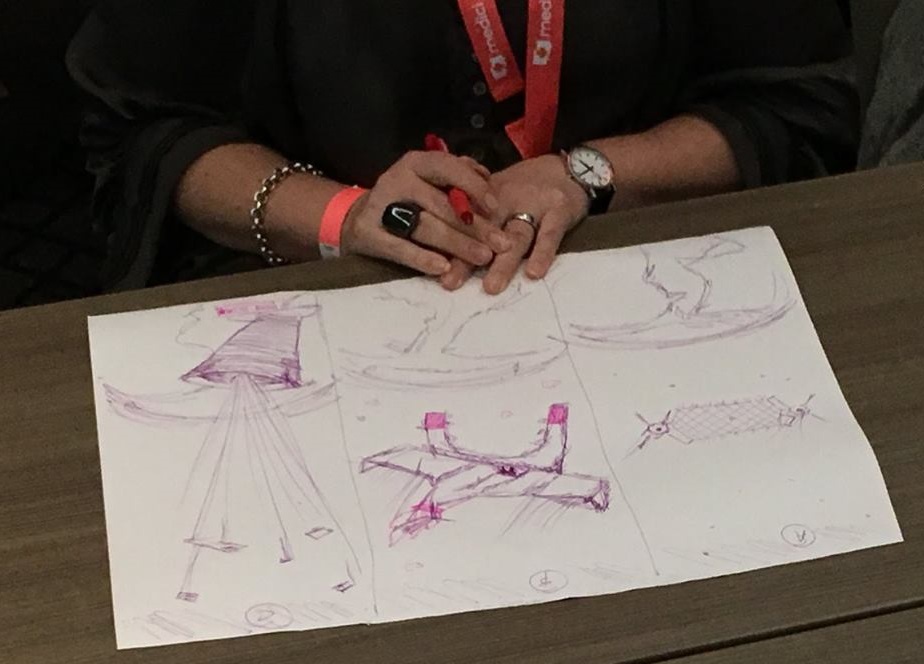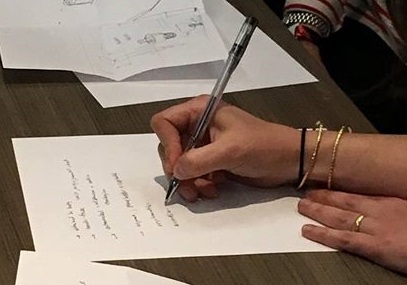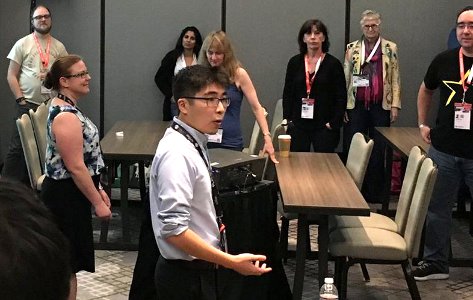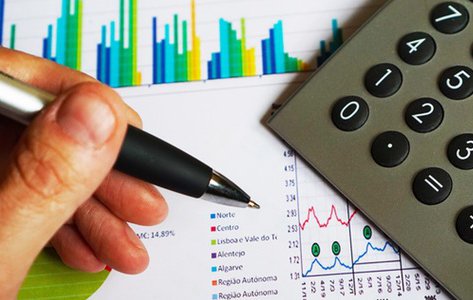

Pios Labs partners with training consultants to offer in-person professional development (PD) workshops for technical professionals and educators around Central Texas. Topics covered include Arduino programming, web development, electromechanical system design, and improv for engineering.
That last topic — "improv for engineering" — sometimes stands out to technical professionals. It refers to using exercises and principles from improv to enhance design and collaboration skills. One reference on how this can work is the guide Engineer's Guide to Improv and Art Games, authored by Pius Wong and published through Pios Labs. It is available as an ebook or book in print. Click the link for more details. Many of the improv-related workshops offered through Pios Labs are based on the ideas published in the book.
Sample workshop offerings from Pios Labs related to "improv for engineering" are listed below. Additional custom programs are available upon request, including:
No matter what training interests you, Pios Labs can customize training for your needs. Email Pios Labs, or contact Pios Labs in another way, to inquire about scheduling and pricing.

Have fun learning research-based idea generation techniques used in universities and engineering firms. Participants will learn and use several techniques according to engineering best practices. They will also play improv games and exercises that facilitate effective collaboration, communication, and imagination.
This session can be customized for the needs of your group. Some example sessions include:

Improve your workflow for customer needs analysis. Participants will practice several techniques in defining needs of the customers or users of their products, including:
 This workshop lets participants grow in their understanding of teamwork in the design process. Frequently designers and engineers have to work in larger teams to create more complex and more innovative products. How well do team members work together? Do individuals take initiative? Do they support their colleagues? Do they communicate well? Participants in this workshop will play improv games that help them reflect on these questions and identify areas for growth.
This workshop lets participants grow in their understanding of teamwork in the design process. Frequently designers and engineers have to work in larger teams to create more complex and more innovative products. How well do team members work together? Do individuals take initiative? Do they support their colleagues? Do they communicate well? Participants in this workshop will play improv games that help them reflect on these questions and identify areas for growth.
 This workshop focuses on recognizing, accepting, and appropriately reacting to and learning from failure in engineering, particularly in the design process. Participants will reflect on what failure means in their profession, define different types of failures, and practice articulating ways to manage failure. Improv games and exercises will facilitate each of these activities in a positive atmosphere. Participants are challenged to role-play failure scenarios and how to navigate them.
This workshop focuses on recognizing, accepting, and appropriately reacting to and learning from failure in engineering, particularly in the design process. Participants will reflect on what failure means in their profession, define different types of failures, and practice articulating ways to manage failure. Improv games and exercises will facilitate each of these activities in a positive atmosphere. Participants are challenged to role-play failure scenarios and how to navigate them.
Practice your skills in noticing everything happening in your classroom, and learn to handle when you are not noticing everything. Participants will play improv games and exercises selected to challenge your skills in simultaneously listening, speaking, observing, and moving, while interacting with other people. Then they will reflect on how to use those skills for classroom management.

Conduct fun experiments on improv games according to the scientific method. Participants will run controlled experiments, as best as possible, on how they play selected improv games. They will form hypotheses about what factors lead to better game play, define test procedures, play games, take measurements, analyze results, and draw conclusions. Educators can replicate or design similar activities in their science, technology, engineering, arts, and math (STEAM) classrooms.
This workshop integrates concepts in psychology, theater, math, science, and technology. Specific concepts covered include: